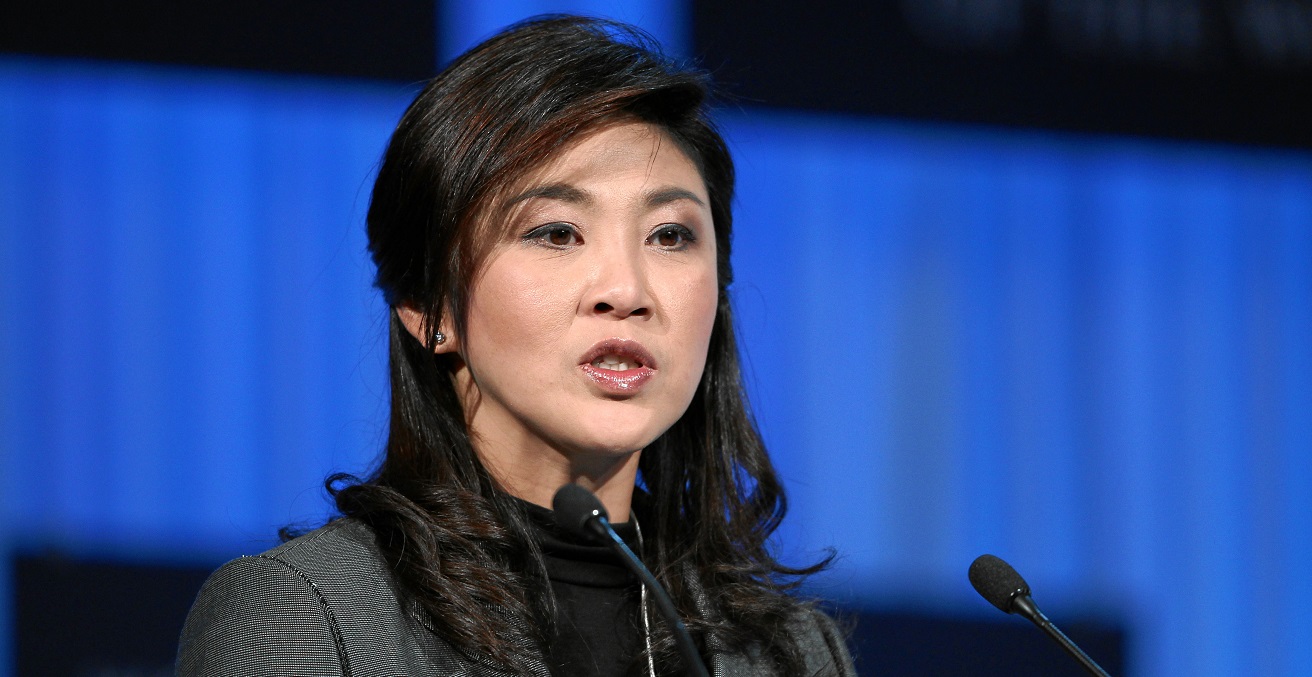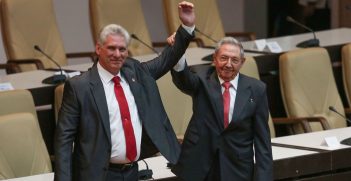Yingluck Shinawatra's Departure from Thai Politics

Ousted Prime Minister Yingluck Shinawatra’s recent flight from the Thai courts points toward continued unrest in the country as the junta seeks to consolidate its power.
As far back as 30 June 2014, just after the latest of Thailand’s coups, Asia Sentinel quoted its Bangkok sources as saying “the plan is to drive [deposed Prime Minister Yingluck Shinawatra] into exile with her brother, put her in jail or give her a sentence that would prohibit her from entering politics again when the junta [the National Council for Peace and Order] allows new elections”.
The disappearance
On 25 August 2017, Yingluck Shinawatra was required to appear before the Supreme Court’s Criminal Division for Holders of Political Positions but did not appear. She was due to hear the court’s ruling in a case in which she was accused of dereliction of duty in not acting to end corruption in the state-run rice pledging scheme when she was aware it was occurring.
Already Yingluck’s minister for commerce and his deputy had been found guilty of corruption in their administration of the scheme and had been sentenced to enormous periods of 42 and 36 years respectively.
The well-known Giles Ji Ungpakorn, one of the present government’s most strident critics, recently contrasted the punishments handed down in the cases of the government ministers, with the average sentences for murder. His verdict was that at 10 times that average they were totally disproportionate to the crime.
He also contrasted the court’s judgement with its confirmation of the dismissal of serious charges against the then Prime Minister Aphisit Vejjajiva and Deputy Prime Minister Suthep Thaugsuban of ordering the killing of redshirt protesters in 2010.
The common suggestion is that Yingluck saw this punishment as a harbinger of an announcement that she herself would receive a long sentence. The further suggestion is that she fled the country without the knowledge of her party but with the connivance of the military government.
It has been noted that she asked her supporters not to bother to turn up to the court on the day of the intended announcement but that, according to the Pheu Thai party’s legal affairs chief, “all key party figures were there, and had not known that Ms Yingluck would not show up.”
Yingluck was evidently well-liked, had been evidently well-served by loyal ministers and had shown every inclination to tough it out; yet she disappointed everyone and disappeared. A warrant was issued for Yingluck’s arrest, the court ordered forfeiture of her THB$30 million (AUD$1.1 million) bail, and the announcement of the judgement was postponed until 27 September. Whatever now happens in Pheu Thai it is a fair bet the opposition forces will shake themselves off and limp onwards.
An enormous amount of attention has been given by members of the government and by the press to the questions of whether Yingluck has actually left the country and if so, how and with whose assistance. It is broadly suggested that she was driven from Thailand (literally, to Cambodia) and from there was enabled to fly further abroad, perhaps to one of her brother’s, Thaksin Shinawatra’s, homes.
It has been pointed out that Prime Minister Prayuth Chan-ocha would have every reason to assist Yingluck to depart, most particularly that her disappearance would save him from either a backlash from the ruling network had she received a suspended sentence or from her own Pheu Thai and its supporters had she been jailed for any length of time. One possibility, and it is a likely one, is that the government coerced Yingluck to leave on the eve of the court’s announcement and itself arranged for a clandestine departure.
The rice-pledging scheme
None of this is to diminish the Yingluck government’s responsibility for the failures of the rice-pledging scheme. The rice support scheme introduced by Yingluck Shinawatra emulated, at her brother’s insistence, the scheme he had introduced. Farmers who had rice to sell could pledge it in advance to a state authority at a declared price and would then be obliged to deliver the grain when it was harvested.
The scheme involved both the stabilisation of rice prices and their augmentation. In respect of augmentation, the “idea was to corner the world rice market by accumulating Thai rice and paying farmers handsomely up front. If the accumulated rice could be flipped into world markets with higher prices, then it would be a win. If not, it would incur corresponding losses [to be met from public revenue].” In fact, Thailand no longer had the capacity to manipulate the price of rice on world markets and the price of its exports fell.
Anti-Yingluck forces have sought to make the politicians involved personally responsible for the large public expense of the scheme. There were major problems with storage. Government-to-government deals to sell the stockpiled rice were attempted but were corrupted. Yet the support of rice prices was an attempt to increase income security among rice farmers and that was an election promise made by a party that had sought to improve rural prosperity.
The rural poor, especially, make for good photo ops
That the Democrat Party applauded the penalties imposed on the two Yingluck ministers responsible for the rice-pledging scheme should hardly surprise. The political network cultivated by the previous king includes the Democrats, Sino-Thai business leaders, many senior state officials, the palace and senior academic administrators.
This network opposed Thaksin’s signature social programs, such as universal health insurance, income support for farmers, and investment in village enterprises. People in the network tend to express hostility to diverting state resources into social projects and instead generally endorse the junta’s guided democracy. Not only are they resentful of democracy, but they seem unable to comprehend basic human rights in general.
When the junta announced recently that it had created 11 reform panels to advise the National Legislative Assembly—eventually—on reforms to laws, it declared that hundreds of reforms will be drafted by appointed panels by the end of the year and then enacted by an appointed legislature. It was also making it quite clear that it will use the procedures within the newly adopted constitution to ensure that an elected legislature will not be able to tamper with the reforms within five years.
It is little wonder that former secretary general of the Democrat Party, Suthep Thaugsuban—who sought to exclude the people from the reform process when he led the People’s Democratic Reform Committee on the streets in 2014—has loudly endorsed the junta’s reform plans. The network is in cahoots with the junta to ensure that if there are new elections as mooted in 2018 the great and the good will return to power, whether or not they have the numbers in the legislature.
Dr Gavan Butler is honorary associate in political economy at the University of Sydney. He is also a member of the editorial committee of the Journal of Australian Political Economy.
This article is published under a Creative Commons Licence and may be republished with attribution.





